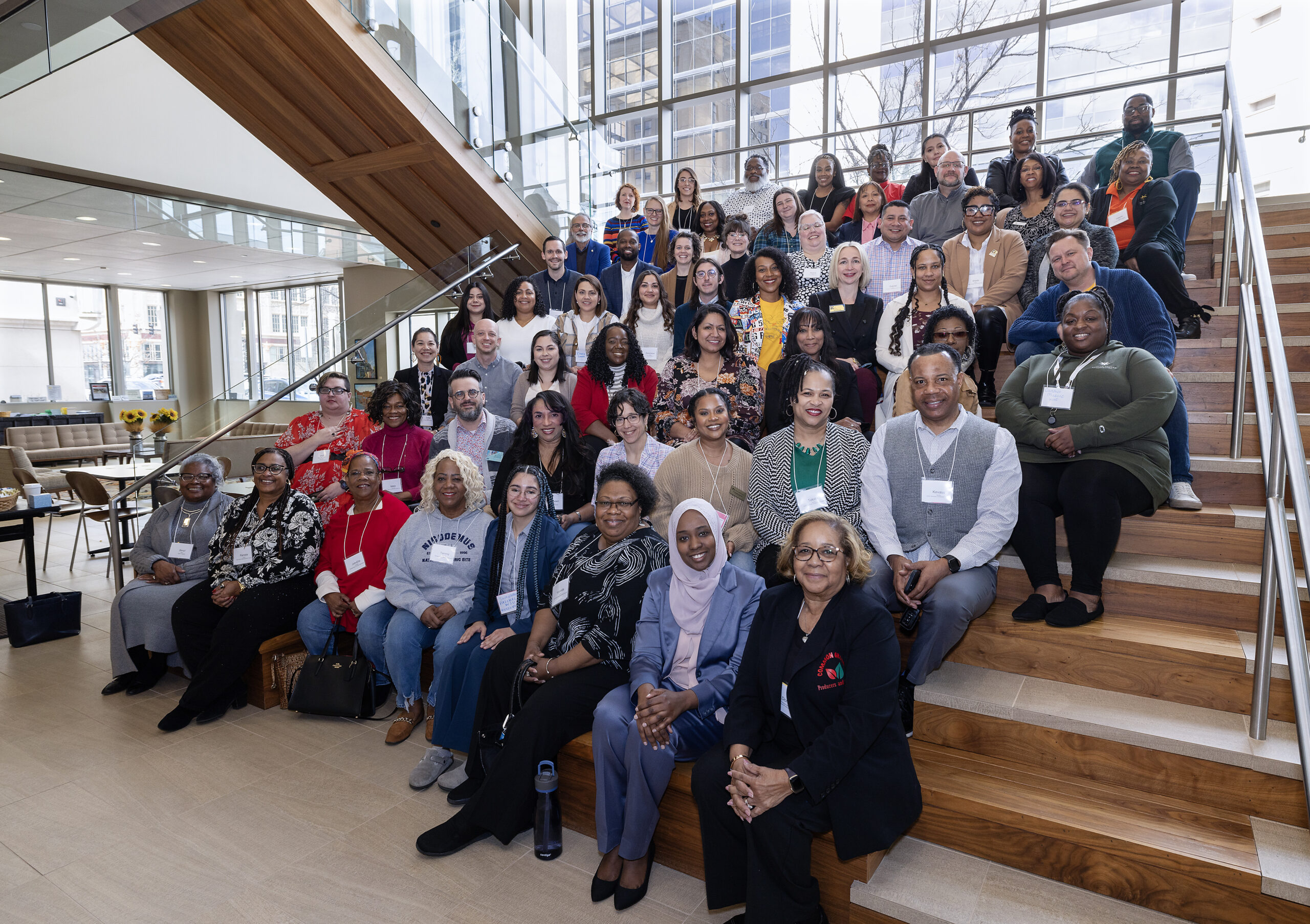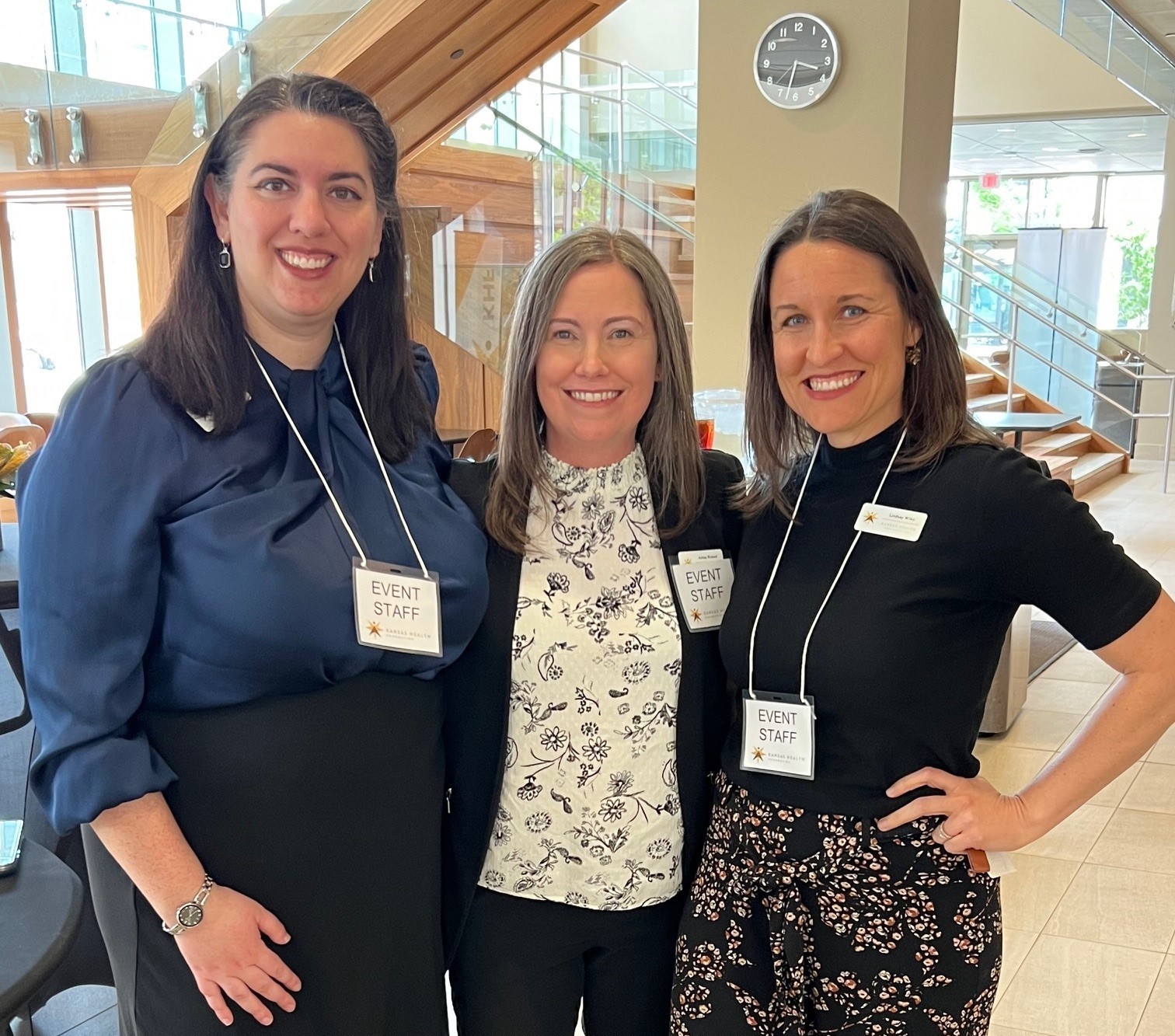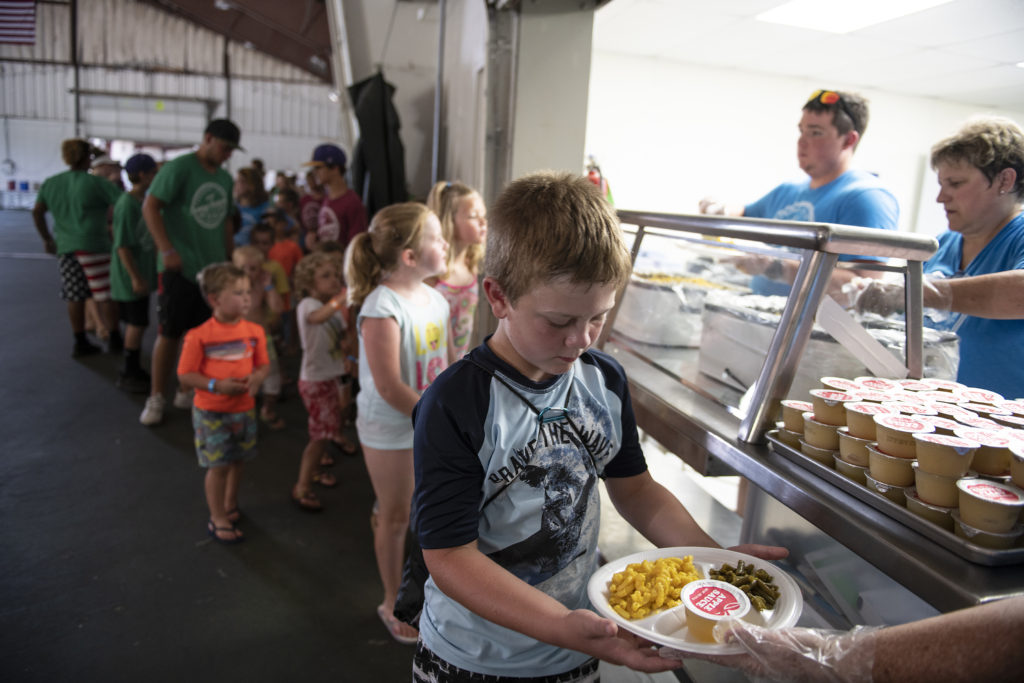In the early morning hours each summer weekday in Arkansas City, Debbi Davidson can be found purchasing six carts of healthy food from her local grocery stores, including 20-25 gallons of milk.
Davidson isn’t buying all of this food to feed her seven grandchildren. Instead, the Arkansas City Recreation Commission aquatics director and her staff are getting ready to prepare 400 hot meals for community children.
A lot goes into running the highest serving Summer Food Service Program site in Kansas. The community ag building site is one of approximately 700 meals sites across the state.
These sites reach hungry children in need by giving them access to nutritious meals and activities to learn, thrive and not be distracted by hunger over the summer. For that reason, and more, the Kansas Health Foundation (KHF) has supported efforts to create and expand summer feeding programs for many years and continues to do so.
“While school may be out for the summer, the need for Kansas children to have access to nutritious foods never takes a break,” said Steve Coen, KHF president and CEO. “It takes a collaboration of many different partners to ensure our children don’t go hungry during the summer months, and it’s wonderful to see so many community supporters coming together to feed the children of Ark City.”
In Ark City alone, Davidson is in charge of four summer feeding sites, which serve variations of hot lunches, sack lunches, afternoon snacks, or supper. When her team started offering hot lunches 14 years ago during a summer camp, they were serving around 50 people – mostly children – a day at the ag building. Now, they serve around 400 lunches and 250 snacks. Approximately 35 sack lunches are also served daily at the rec center and around 140 snacks are given to children during a break at the nearby pool.
These meals serve a great community need. Last school year, 70 percent of Arkansas City USD 470 students were approved for free- or reduced-price lunches, according to the Kansas State Department of Education. Over the years, Davidson has seen eligibility in her area climb, and with that, she’s seen the need to serve more meals in the summer months.
“It’s truly amazing how much the need has grown in our community over the past decade,” Davidson said. “To this point, we have been able to meet the needs by growing our summer meal programs.”
Brandi Herman’s two sons Brogan, 6, and Korbyn, 5, participate in the summer camp, where they enjoy the meals. Brandi jokes Brogan eats more healthy food at the summer meals site than he does at home.
“He is the pickiest eater,” Brandi said. “They make him try new foods that I can’t get him to eat at home, and he’ll actually eat them.”
She was a counselor the first year the rec held its summer camp and wanted her children to be involved from the moment they could.
“It’s home. It’s family. Debbi treats them like they’re her own,” Brandi said. “I trust her with my life, so I trust her with my kids.”
These summer meals sites like the ones in Ark City also have a statewide champion in Kansas Appleseed. This KHF grantee is helping to promote access to healthy food for children by advocating for expanding summer feeding programs and creating new ones in underserved areas.
They’ve taken notice of the work Davidson is doing in Ark City.
“Hundreds of kids come through her sites to eat each day, and she can probably tell you each of their names,” said Christina Ostmeyer, Kansas Appleseed communications director. “Her determination and dedication to developing programs and ensuring no kid in her community goes hungry does not stop when the summer ends. Not only does the Arkansas City Recreation Commission serve summer meals, but they’ve also expanded year-round service, serving up meals after school.”
The United States Department of Agriculture’s Summer Food Service Program, which provides free meals to children under age 19, is marketed in Ark City through the rec and school district as a way for children to enjoy a fun activity and get a free meal.
Ostmeyer said what makes the rec’s summer feeding program successful is that the meals are integrated into programs and locations where youth already congregate. It also has a leader who understands how important it is for children to learn about healthy eating, physical activity, and ways to socialize and develop skills that’ll take them into adulthood.
One challenge summer meals sites face is ensuring they have enough food to meet the daily demand. For Davidson, this means several trips to grocery stores. For her, it’s important to shop local and support her town.
“The fact that Deb chooses to shop local and let us be a part of helping in any way is so important to us,” said Rebecca Chapman, general merchandise manager at the Ark City Dillons. “We try to keep more of her regular items in stock, so she never runs out. We know how important the summer meals program is, and we cannot begin to thank Deb enough for her personal commitment to make sure children in our area don’t go hungry over the summer.”
For anyone interested in hosting a summer meals site, Davidson has some basic advice. She believes eligible communities should start simple, by adding a snack at a pool or one lunch a week and go from there. You don’t need a full-time staff to run the program, either, she added.
“If I can do it with everything else I’m working on, anyone can do it,” Davidson said. “If you can find people who you empower with the same servant’s heart, you can do this.”
Davidson’s own servant heart is just one reason why the children in Ark City don’t go hungry in the summer months.
###
For more information about Kansas Appleseed and its summer meals efforts, please visit www.kansaskidstable.org/.

















